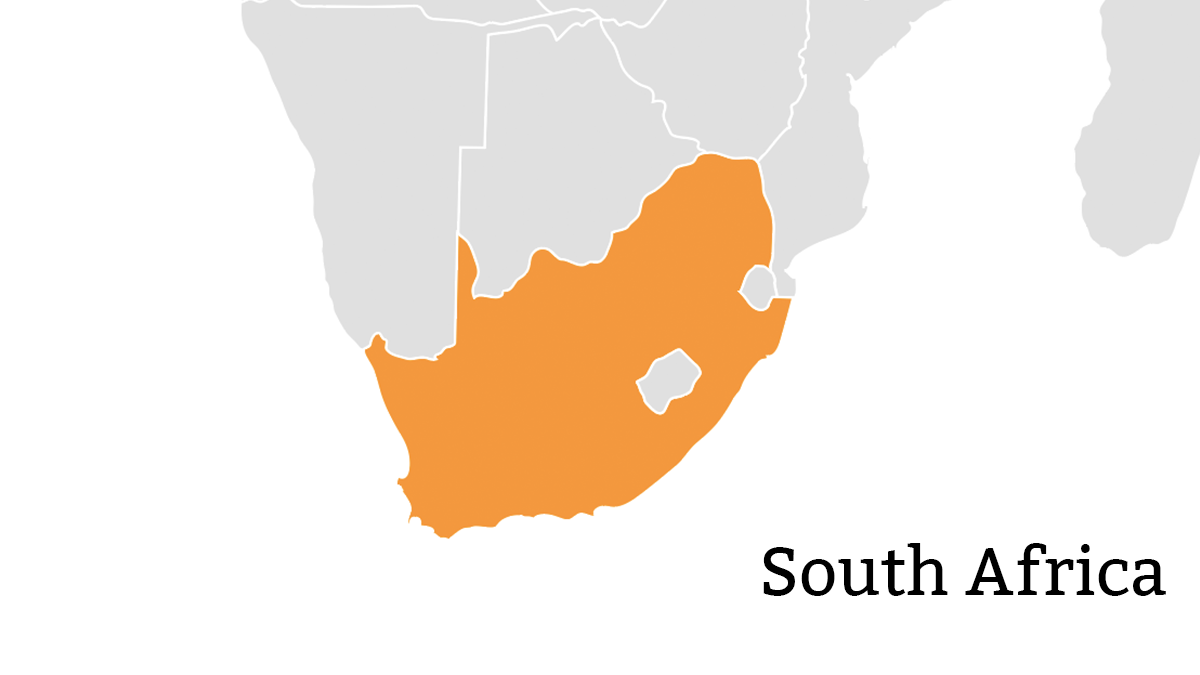
In addition to being the continent’s most developed economy, South Africa is the most mature mobile telecommunications market in Africa. However, in comparison to other countries in the region, mobile data plans are substantially more costly relative to individual income than in other African countries. For this reason, increasing the affordability of mobile data is a particularly salient issue in the country. The high costs are in large part due to the fact that two players dominate the mobile telecommunications market — Vodacom and MTN.
In 2016, a campaign to lower data prices was advanced by a popular DJ. The movement was known as #DataMustFall, modeled after other contemporary social movements in South Africa. One of the main concerns of the DJ was the effect that the high price of data was having on young people, who were disproportionately disadvantaged in their ability to access life-enhancing services via mobile, such as e-learning. Due to the movement’s popularity, the DJ was invited to speak before a telecommunications parliamentary committee to urge the government to address the pricing issue.
The campaign gained the support of the Economic Freedom Fighters (EFF), a youth-oriented political party. EFF called on the telecommunications regulator to take action and force providers to lower their rates. In response to the demands of the #DataMustFall movement, the following year then-president Jacob Zuma stated that lowering data costs was “uppermost in [the government’s] plans.” But by the summer of 2017, activists realised that prices had not fallen, despite the Parliament’s November 2016 deadline to lower costs. In July 2017, protesters initiated a 36-hour social media boycott to intensify the campaign.
In 2018, the ANC (the largest political party in South Africa) lent their support to the #DataMustFall movement in a tweet. There were also appeals from the finance minister and the president in 2019 to lower data prices. The Competition Commission, a state regulator responsible for ensuring the economy remains competitive, officially noted in May 2019 that mobile data prices were high and that the operators’ pricing structure lacked transparency.
In December 2019, the Competition Commission released a report based on its Data Services Market Inquiry, calling on Vodacom and MTN to reduce their retail prices by 30% to 50% within two months, or else face prosecution. The Competition Commission started negotiations with the operators to establish the new pricing structure.
The Competition Commission made several other relevant observations in their report. Both MTN and Vodacom charge higher prices in South Africa than in other countries in which they operate, and they charge consumers substantially higher costs per MB on smaller data bundles (less than 1GB) than on larger data bundles. This pricing strategy came at the expense of those with fewer resources and meant a higher price for them per MB, than for people with more resources (who could afford to purchase larger data bundles). This finding led the Commission to mandate that operators could not charge more than an extra 25% per MB on small data bundles.
As the two-month deadline to implement the reduced pricing structures approached, the Competition Commission extended the deadline, giving operators an extra month to comply with the requirement to lower their prices. This was done because it appeared the operators were making a good faith effort to negotiate new pricing with the Commission.
On March 10, 2020, the Competition Commission announced the results of its negotiations with Vodacom, which agreed to reduce its prices by 30%, provide two free SMSs per day, offer free services to public schools and universities, and enable free access content such as job portals and health information websites. The new pricing structure would come into effect on April 1, 2020.
By early March, MTN still had not released their new prices. On March 20, 2020, MTN announced that it intended to reduce the cost of monthly data bundles below 1 GB by 25-50% starting on April 15th. However, just three days after this announcement, the Competition Commission clarified that MTN’s price reduction was a unilateral move that the operator had not agreed with them. MTN responded to the Commission’s comments, expressing their commitment to the announced prices through reaching an agreement with the Commission soon.
Although the commission found no evidence of price gouging by Cell C — a smaller mobile network operator in the country — the operator voluntarily signed a deal with the Commission to increase its customers’ access to data services and improve its pricing transparency.
The reduction in data prices across the board in South Africa in 2020 is an important step towards increasing internet access for all of the population. Nevertheless, the high cost of mobile devices remains an additional access barrier that should be addressed to achieve further digital inclusion.
